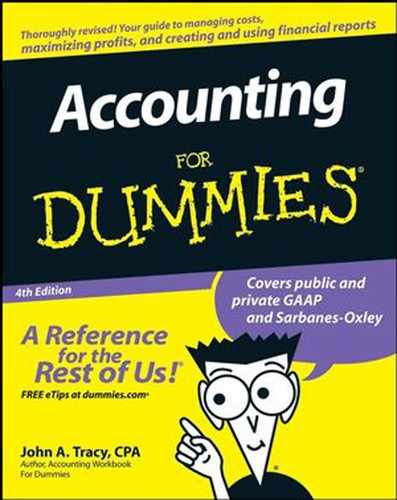4.6. Closing Comments
The income statement occupies center stage; the bright spotlight is on this financial statement because it reports profit or loss for the period. But remember that a business reports three primary financial statements — the other two being the balance sheet and the statement of cash flows, which I discuss in the next two chapters. The three statements are like a three-ring circus. The income statement may draw the most attention, but you have to watch what's going on in all three places. As important as profit is to the financial success of a business, the income statement is not an island unto itself.
|
I don't like closing this chapter on a sour note, but I must point out that an income statement you read and rely on — as a business manager, investor, or lender — may not be true and accurate. In most cases (I'll even say in the large majority of cases), businesses prepare their financial statements in good faith, and their profit accounting is honest. They may bend the rules a little, but basically their accounting methods are within the boundaries of GAAP even though the business puts a favorable spin on its profit number.
|
Anytime I read a financial report, I keep in mind the risk that the financial statements may be "stage managed" to some extent — to make year-to-year reported profit look a little smoother and less erratic, and to make the financial condition of the business appear a little better. Regretfully, financial statements don't always tell it as it is. Rather, the chief executive and chief accountant of the business fiddle with the financial statements to some extent. I say much more about this tweaking of a business's financial statements in later chapters.

